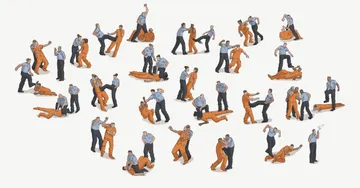Subscribe to “Smoke Screen: Just Say You’re Sorry.”
On a winter afternoon in 2015, Larry Driskill was approached by a stranger in a cowboy hat. The man introduced himself as Texas Ranger James Holland, and said he needed help to solve a murder.
Holland didn’t just need help solving the 10-year-old cold case. Driskill was a suspect — and after less than two days, he confessed. But the mild-mannered veteran continued to insist he had no memory of killing Bobbie Sue Hill, a 29-year-old mother of five.
From his prison cell, Driskill began to wonder if Holland had manipulated him into implicating himself. He wrote letters to Marshall Project writer Maurice Chammah, who sought out the interrogation tapes. Chammah learned that beneath Holland’s growing fame as a “serial killer whisperer” was a disturbing array of investigative techniques, from lies to gaslighting to hypnosis.
And all of them were legal.
In “Smoke Screen: Just Say You’re Sorry,” a new podcast from The Marshall Project, Somethin’ Else, and Sony Music Entertainment, Chammah draws on his 2023 National Magazine Award-nominated story, “Anatomy of a Murder Confession,” to tell the story of Holland and Driskill’s psychological drama.
The six-part series takes listeners inside the interrogation room to explore the psychology of memory, the epic history of the Texas Rangers, and growing policy debates about how detectives interrogate suspects and solve cold cases. Chammah also wrestles with how “true-crime” podcasts treat their human subjects, from the families of murder victims to wrongly-convicted prisoners.
“Smoke Screen: Just Say You’re Sorry” debuts on May 1. Listen to new episodes each Monday, wherever you get your podcasts. The series will also be available on The Marshall Project’s website.
